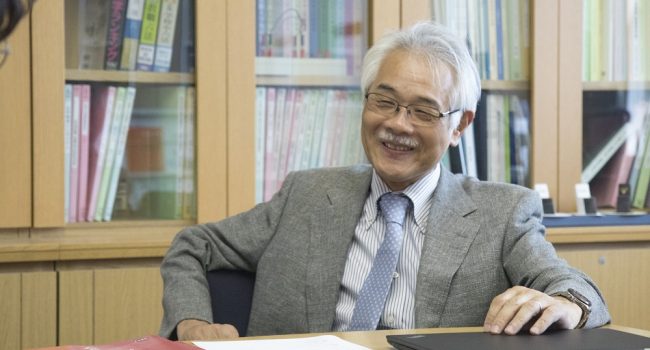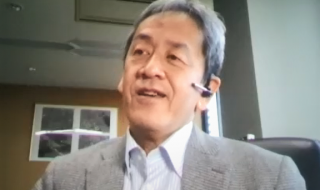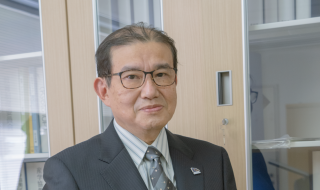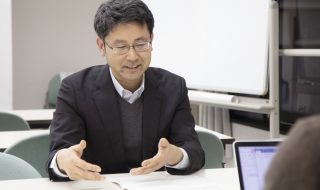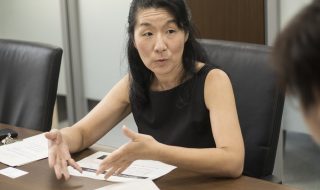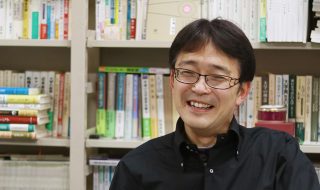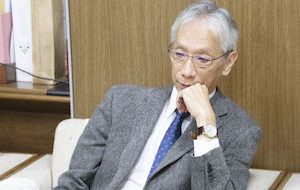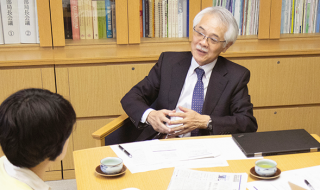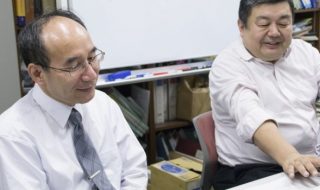Research Internship Program Promoted by the Collaborative Education for Next-Generation INnovators & Exploration of knowledge intersections (C-ENGINE)
What is the C-ENGINE program like?
It places doctoral students in business internships for about two months. Through C-ENGINE activities, students can obtain an experience not possible in ordinary college research life. It is easy for a university to develop an internship approach on a one-on-one basis with a company. However, such approaches are not very efficient. The efficient provision of internships that meet the needs of both parties is possible when several universities form a consortium to match businesses and students. Initially, the consortium operated with subsidies from the Ministry of Economy, Trade and Industry. Currently, it runs completely independently.
→ Visit website of C-ENGINE (Only in Japanese)
Why do you use internships as a tool?
When a doctoral student seeks a job, intending to go directly into the real world from their supervisor’s research laboratory, he or she often lacks qualities other than specialized knowledge and can be narrow-minded. Meanwhile, businesses have the impression that doctoral students are not easy to manage.
A breakthrough in this situation is needed. By taking part in this internship program, doctoral students are accepted by businesses as colleague researchers for nearly two months. The internship program provides an opportunity for students to obtain an experience outside the supervisor’s laboratory and for businesses to know what doctoral students are like.
What is the background of the internship program?
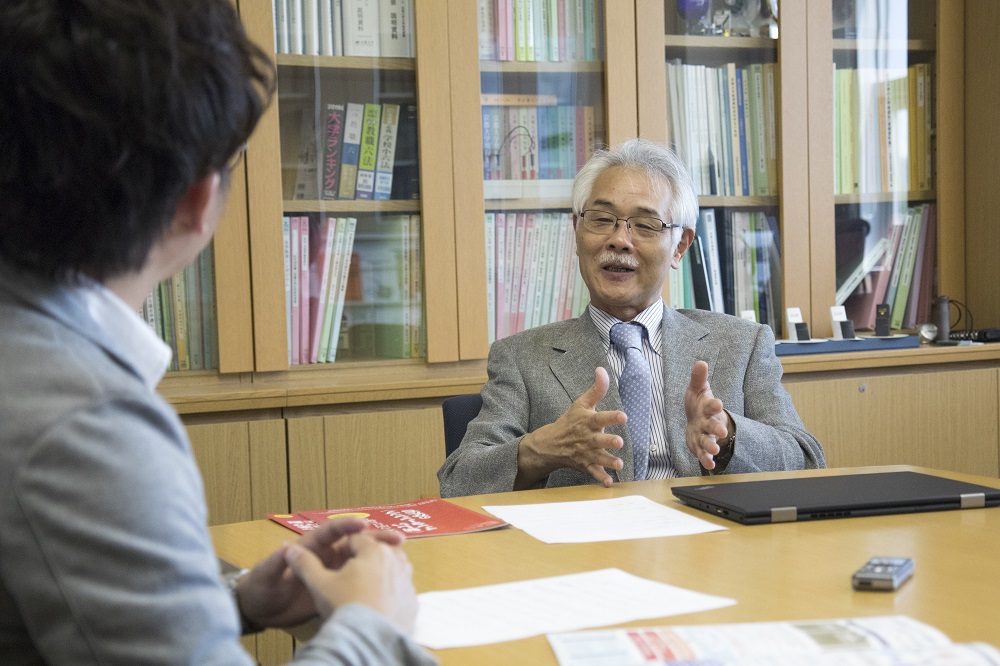
Currently, it is stated that the doctoral degree programs are enhanced, and an increasing number of students enter the real world with a doctoral degree. They have the potential to solve various problems in the real world. It is, however, necessary to allocate human resources like them according to the needs of society.
When allocating human resources to match social needs, what difficulties do you actually recognize? In what way is C-ENGINE helping to solve these difficulties?
Your questions can be answered conveniently by referring to the phrase “a contest with a follower of another school.” For a doctoral student, knowledge in his or her area of specialization is rarely directly useful for working in the real world. The student should understand the need to transfer his or her specialized knowledge to work. Accordingly, by participating in an internship program and trying to demonstrate his or her performance in an area somewhat apart from his or her area of specialization, the student will be able to widen his or her specialized knowledge.
I think an important factor in continuing C-ENGINE is the matching of students and businesses. How do you do it?
Students prepare material that describes their areas of research, while businesses describe their research themes and what they expect students to do. The material is posted on dedicated web pages. A group of instructors from the consortium member universities serves as the coordinator. They match students and businesses based on the submitted material.
What businesses need may not always be met by students’ areas of specialization, isn’t that true?
Both businesses and students are informed in advance to know that discrepancies are common. When a student joins a company and goes into the workforce, he or she will probably not directly apply his or her specialized knowledge to his or her task. It is common that the student transfers his or her specialized knowledge to an area somewhat apart from his or her own. C-ENGINE provides a good opportunity for students to get accustomed to such a situation.
What impressions do doctoral students have, after taking the internship program? Are there any specific stories?
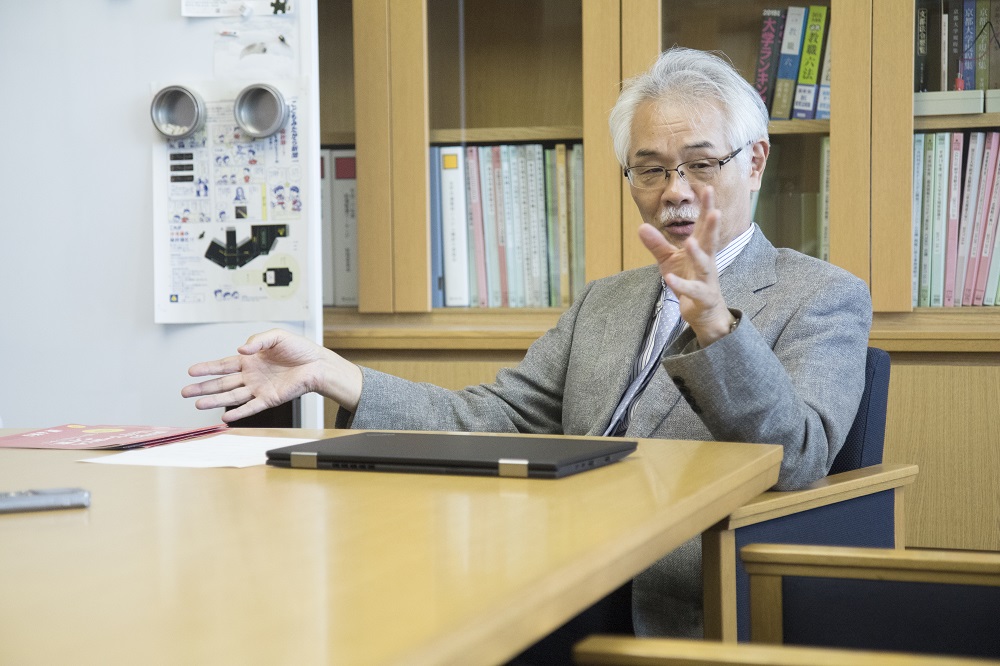
Students who participated in the internship program have returned to their respective supervisors’ laboratories having achieved substantial growth. If you are interested in specific stories about their experiences and practical achievements, please visit the relevant web page (see below). I hope many viewers visit the page.
→ View internship examples (Only in Japanese)
What remarks have you heard from businesses after these activities?
Businesses seem to accept interns principally as members of research teams comprising younger employees. I have heard that the internship invigorates younger employees and improves the mood of the research team.
What is the secret to successful continuation of this activity?
Matching between students and businesses is critically important for this activity. It is a good opportunity for doctoral students to know what companies expect of them. Interns participating in the program also help host companies become aware of the existence of doctoral students and have insights about where they will fit best to achieve good performance.
In this way, matching is important to bring about benefits to both businesses and students.
What challenges do you think this approach will face as it continues in the future?
Both students and businesses will be willing to take part in the program if they understand the approach is beneficial to them. At present, however, students are apprehensive about the possibility that their research time may be shortened or their research itself may be delayed by the program. Moreover, in some cases, laboratory instructors complain that students will be absent from the laboratory due to C-ENGINE. Meanwhile, businesses at first face some difficulties accepting interns. The program also aims to deliver innovations; therefore, intellectual property issues may arise in the future. Additionally, there is the problem concerning the treatment of students, or, more specifically, whether or not businesses should pay wages to students.
What is your plan for continuing C-ENGINE in the future?
The program is currently intended for doctoral science students, as imagined from the term “innovation.” It is planned to extend the program to humanities and social sciences students as well, on a trial basis.
Moreover, businesses have expressed their wish to accept foreign students. Accordingly, this type of plan is also being formulated on a trial basis. Currently, many major Japanese corporations take part in the program. We’d like to also involve venture businesses in the future. This is subject to the issue of name recognition. We will consider this possibility while monitoring the number of student applications and other factors.
Through this interview, I have sensed your hopes for articulation between university and business. What problems are you aware of in taking the internship approach?
I’m in doubt about the way society views the doctoral degree program. Society views doctoral students simply as researchers. However, given the expansion of graduate schools, it will become necessary in the days ahead to give careful considerations to job-search activities for doctoral students educated at and leaving universities.
What do you want the readers of this article to know about C-ENGINE?
C-ENGINE is a program that can satisfy both students and businesses. At the same time, laboratories with which intern students are affiliated also experience benefits. For instance, I’ve heard about students returning from internships having striven to assimilate in corporate relationships, who build good relationships with people around them and who became good at time management. In addition, in one case, a theme pursued in an internship developed into a joint research project. The internship program can in this way be viewed as a research exchange opportunity.
What goal do you want to set for the university by taking the C-ENGINE approach.
I want to raise the graduate school’s student enrollment. High performers should pursue research in a doctoral degree program, achieve a higher degree of specialization, and, with specialized knowledge, join the real world, rather than leaving university after a master’s program, a path most desired by businesses. I’d like to make it possible for students to rest assured about the future when enrolling in a doctoral degree program.
By taking a look at the list of businesses participating in the internship program, one can see that many businesses need doctoral students and view them positively. In other words, C-ENGINE is a tool to allow students to enroll in a doctoral degree program without worry for their future employment.
In what way do you want to promote C-ENGINE at Kyoto University in the future?
For Kyoto University students, it is difficult to take the plunge into suspending their research and participating in an internship program. No credits are awarded for these activities. However, for students to participate in the program as a step on their envisioned career path, it is necessary to develop a scheme to encourage them to take part in this project.
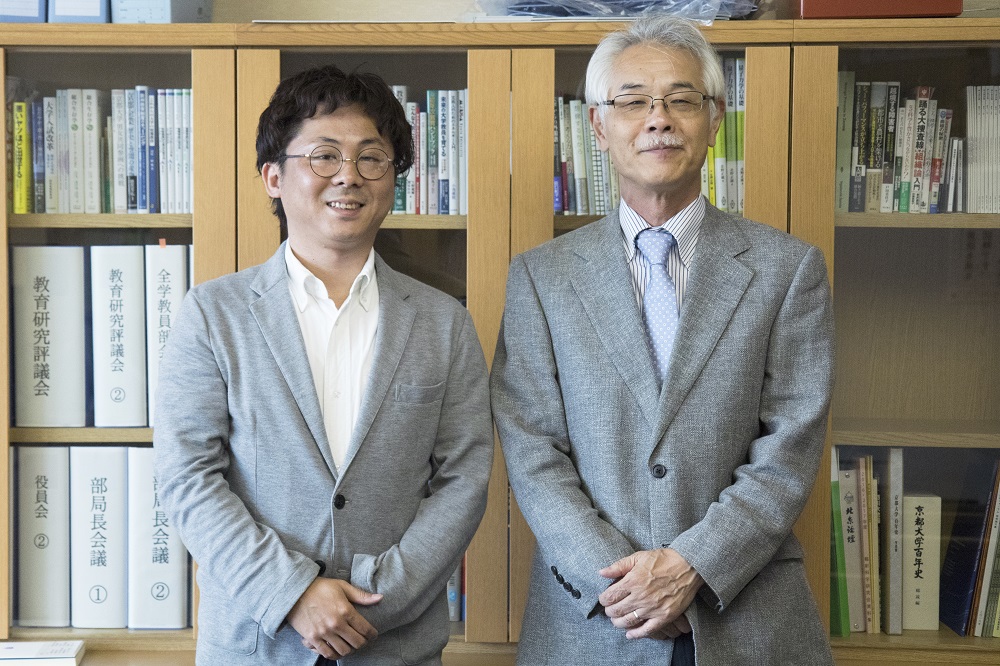
(Recording day: August 3, 2018)
List of Interviews


